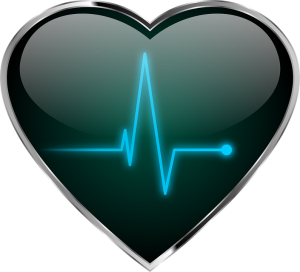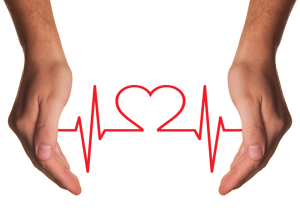Sharing the career-life journey of a Head Cardiac Electrophysiology Technician
As a writer, there is nothing better than writing about something that I enjoy. In my case, my interest is in medical technology and innovation. The drawback is I do not meet anyone in person. I hardly leave the side of my faithful companion, Google. Up until now, the content I write is a mesh of research and articles that I read online.
The following piece is different—and here is why:
In this piece, I am cultivating original content of new ideas from an original source. David Orenstein is the Head Cardiac Technician at a prestigious hospital. In this interview piece, I write about his ideas and insights.
He is in an exciting and developing field; Cardiac Electrophysiology. Orenstein says that the field is always changing. As a Cardiac Electrophysiology Technician, he looks at the heart’s electronic-circuitry. Like me, David is passionate about innovation and technology. The difference is David interacts with technology daily, whereas I only read about it.
As David emphasizes, what “we” are doing in the field now will completely change in the future.
Why did you choose a career as a Cardiac Electrophysiology Medical Technician?
Let me go back to my career history; to where it all began.
I grew up in England and was always interested in the medical field, yet I was not academic in high school at all. I was a late bloomer.
I could put in no effort and get a B grade, but this was not enough for medicine. I then started volunteering in the ambulance services, and quickly caught the bug; the medical bug! then I had to get into medicine. By that stage, I was getting ready to start a family with a first child on the way. My father-in-law and brother-in-law are both doctors. They advised that if you start in medicine now, you are going to miss building your family and may not have time for them until you are 40 years old! My brother-in-law had a great suggestion. He had a friend who was a medical technician in cardiology. I spoke to him and this is when I made my first foray into the cardio technician world. I did a 3 to a 4-year program to become a medical technician. I am glad I made that choice. I never needed to do a night or weekend shift.
How would you promote your area of expertise to younger medical graduates?
In my role as a technician, I am the connection between technology and the physician. At the same time, I also play a clinical role. I have a relationship with and treat our patients. Without me or any member of my team not being there, the medical procedure will not happen. Doctors “would be blind” without the information we (technicians) provide them. People tend to say there is a shortage of viable candidates or too many candidates, and too few jobs available. I have a strong belief no matter what field you are in, if you apply yourself you will succeed; there are always jobs for good people.
You also need to believe in what you do. You cannot look at your work as merely a nine-to-five or seven-to-three job where you do your job and go home. Unfortunately, in our modern, fast-moving society, no matter what field people are in, they tend to take their work home with them.
You need to see a career (as a medical technician) as a calling. You have to and want to invest in it and grow in it. It is a fabulous field that is still developing. In addition, the technician can be on the front row of medical leadership, as much as a doctor can be.
There are also different career pathways that a technician can take. Not only are there technicians in hospitals, but they also work in different types of industries. People that have similar training to me work in companies with specialized systems. They can also work in hospitals within specialized systems to assist in procedures. They can also work in clinical and sales-based positions. The profession caters to different interests, with various benefits depending on which area, be it in a hospital, sales, or industry (outside the hospital) that the technician works. They (technicians) can grow within their companies, whether they are on the clinical side, R&D, or in business management.
Often there are technicians in an industry (outside of healthcare), that move into a hospital. You can also have technicians working within a hospital going into more industry-related positions. To become a medical technician is not over once you have completed your studies; the real learning begins when you enter the world of work. Electrophysiology is just taking off. The way we will treat patients in 10 years will be dramatically different. Moreover, in 20 years, the field will have gone through a transformation again.
Does non-invasive surgery trump invasive surgery every time?
“I am a non-invasive guy for the heart”. We say our procedures are minimally invasive.
We take catheters that go through the blood vessels, which lead toward the heart. Here we are mapping the heart without being inside it. If you ask a heart surgeon, they will tell you invasive procedures are simpler. First, they open the heart. Then they see what they are treating. Lastly, they perform the procedure. For us technicians, we have moved on from this approach. We (cardiac technicians) can build 3D maps of the heart, where we see exactly where the electricity is moving, and patients recover quicker from our procedures. Patients can have an 8-hour complex procedure. The next day, patients can leave the hospital and go home without needing stitches or facing any long-term recovery period. When someone has open-heart surgery, it takes him or her much longer to recuperate.
Nonetheless, heart surgeries have come a long way. In the past, physicians performed all heart surgeries using a heart bypass machine, whereas today they are now performing heart surgeries on beating hearts. These procedures reduce recovery times and the risks involved. Despite progress in invasive surgery, minimally invasive methods are the future for even invasive physicians. Professionals are looking at how to use different energy sources to treat the heart without involving catheters.
How is healthcare, particularly cardiac surgery, becoming more personalized/customized?
I work in the field of cardiac electrophysiology. I trained 6-7 years ago, first qualifying as a medical technician. I then specialized in other areas of cardiac catheterization, respiratory techniques, and apparatus. My third and main specialty is electrophysiology.
What is electrophysiology? Picture the heart as a pump with an electrical circuit, which needs careful care to maintain it. We as technicians look at the heart’s arrhythmic pattern, treating patients with faster, slower, or an unusual heart rate.
We are involved in two sub-specialties of cardio-electrophysiology one is devices, imparting pacemakers, defibrillators to assist the heart to beat better, as well as helping the electro-rhythm of the heart. The other specialty is ablations. We discover and ablate different sections of the heart that could be malfunctioning, or in electrician language, have a short circuit.
Our field is rapidly progressing. We are one hundred percent dependent on technology as we approach the heart as a complex electrical circuit. Technology helps us to map regions of the heart accurately and provides long-term solutions for patients to cure their arrhythmia problems. Alternatively, it facilitates long-term treatment that can give them back their quality of life and maintain it.
Each year there are state-of-the-art innovations; every year they are amazing and really change the field. It was only twenty years ago that cardio-physiology was relatively unknown. Now it is huge. It is blossoming. Moreover, we have not reached the peak of it yet. The gold standard of today will dramatically transform in ten years.
The personalization and customization of medicine today
In the current medical climate, physicians increasingly rely on technology. Therefore, the role of the medical technician has grown in importance. As a technician, I participate in procedures. I am involved in clinics, and doctors are blind without the information I provide for them. I have to be “on the same page” as my doctors to work with them. As well as to know what they are doing and provide him/her with electrical information of the heart. The information that I provide is essential for guiding procedures so they can successfully treat patients.
All medicine is becoming specialized medicine where the goal is building a more holistic picture of the patient. An issue comes with the personalization of medicine. The medical world is moving in a more subspecialized direction. Physicians now treat patients with individualized conditions. The result of this subspecialized trend is you could have between 5-8 different physicians treating the same patient for different ailments.
It is a rarity that you have one family doctor managing the patient. I believe that this is something that will not change in the future. However, family doctors need to manage the patient holistically looking at the full picture of a patient; so somewhere down the line, there needs to be a change.
What we can learn from the journey of David Orenstein
Throughout my conversation with David Orenstein, I was able to get an insight into the world of a cardiac technician. Cardiac technicians see the heart as an electrical circuit and construct 3D maps essential to medical procedures. They form the bridge between medical technology and the physician. Their participation is critical to procedures performed by physicians.
As healthcare progresses into the digital age, the importance of the technician’s role will continually grow. One trend highlighted by Orenstein is the growing personalization of medicine. The repercussions are both positive and negative. While more niche expertise becomes available; it might also come at the price of holistic medicine.
The future looks bright for the medical technician. For the graduate, the career pathway is a varied and interesting one. Today medical technicians not only work in hospitals, but they also work in Research and Development closely involving developing innovation for the future, sales, or business management. As Orenstein says, what technicians will be doing in 20 years is “above and beyond” what they are doing now.
The post Sharing the career-life journey… appeared first on Merraine.



